33.Thirty third resident, for a whole month, from the15th of October until the 15th of November 2019: Hilmar Oddsson
About Hilmar Oddsson:
Born in ReykjavĂk as a son of a playwright and a specialized educator, Hilmar grew up in what we could call a cultural home.
Friends of the family were writers, actors, painters and musicians so Hilmar grew up in the firm believe that one could make a living as an artist.
First he dreamt of becoming an architect, then a conductor and finally a film maker.
After having studied classical cello and then moved from Bach to The Beatles and formed a band, "Melchior",
which only played original music written by Hilmar and other band members,
he finally followed his dream to become a film director. He went to Munich to study film making.
After five years in BavariaÂŽs capital he returned to Iceland to make his first feature film, Eins og skepnan deyr (The Beast).
The film was shot in the desolated fjord Loðmundarfjörður in the East of Iceland. It was premiered in March 1986.
Beside writing and directing, Hilmar also wrote some songs for the film that became quite popular in Iceland.
His second film came eight years later. TĂĄr Ășr steini (Tears of Stone) was a dramatic bio-pic about IcelandÂŽs probably most original, but at the same time most neglected composer, JĂłn Leifs,
who married a Jewish pianist and survived until 1945 in Nazi-Berlin.
This tragic story became a huge success, both in Iceland, as in many other countries, and it contributed to the renaissance of JĂłn Leifs and his music,
a music that today has been internationally acclaimed as a great cultural heritage of Iceland.
It was hard to follow up the success of Tears of Stone.
Hilmars' next film, the parodic thriller Sporlaust (No Trace) was not the box office's success that its makers had hoped for.
So Hilmar returned to drama in his next film, KaldaljĂłs (Cold Light), an adaptation of a novel by VigdĂs GrĂmsdĂłttir.
That film was quite well recieved, both in Iceland and abroad, were it won several awards.
His fifth cinema feature was Desember (December), a chamber film (as Hilmar calls it),
that deals with the complexity of celebrating Christmas in a modern consumers' society,
if youÂŽre not so lucky to have a steady job and you probably belong to the lower classes of society.
A bittersweet film about love, death, music and poverty.
Beside his feature film making Hilmar has made several TV features, documentaries (Dieter Roth puzzle), short films and other film and television programs.
His old band, "Melchior", was reunited after 29 years of silence in 2007 and Hilmar was the dean of The Icelandic Film School from 2010 to 2017.
HeŽs returned to free lance film making and he was here in Höfn to write the first draft of his screenplay about Eyvindur and Halla,
Icelands' most famous or notorious outlaws, which he hopes wil make it to the big screen in the coming years.
Few days before he arrived, Hilmar made a request:
Could possibly somebody lend me or rent me a keyboard while IÂŽm in Marseille?
It doesnÂŽt have to be complicated or advanced, can be pretty simple.
I use music to distract my mind while writing and I also happen to write songs when IÂŽm "in the moodâ.
We, at HĂFN, found the key board, which sat by the writing table when Hilmar arrived!
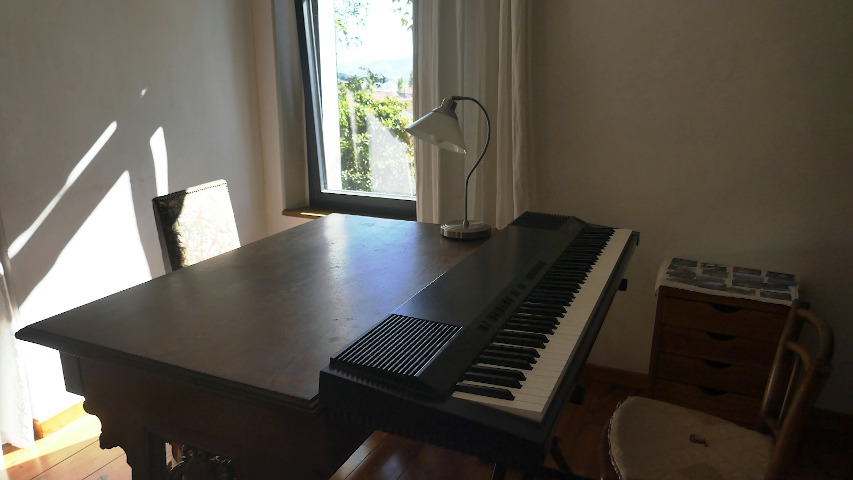
Asked when he arrived what he was expecting, looking for, what he would do while at HĂFN/Marseille, he answered:
I wanted to get away from my simple yet complicated life in Iceland to concentrate on my writing.
I heard of Residence Höfn and having spent three weeks in Marseille some years ago,
it immediately seemed to be the ideal place to be creative in and furthermore I became interested in the whole concept of the residence.
From now on, here at HĂFN, IÂŽm really looking forward to renewing my acquaitance with this exiting and beautiful city and getting to know new quartiers,
like the northern Verduron bas/Saint Antoine and L'Estaque.
So, obviously, when IÂŽm not working I will be strolling around and trying to deepen my friendship with Marseille and its culture.
The environment is stimulating and "they" really take good care of me here, though IÂŽm still very much my own boss...
The 29th of Novembrer 2019, Hilmar, as he had actually promised to do, sent his own "offering" to HĂFN: a text, in Icelandic of course,
that tells about his experience at HĂFN and Marseille as he was "our "resident. He addedI a small selection of photos he had taken during his stay.
Dominique, coordinator of the association and writing residency HĂFN, translated Hilmar's text in French.
HERE, Hilmar's text and its translation in French:
- "HAUST Ă HĂFN": files/HaustiHofn.pdf
- "UN AUTOMNE Ă HĂFN": files/UnautomneaHofn2.pdf
HERE BELOW, few pictures that Hilmar selected and added to his text.
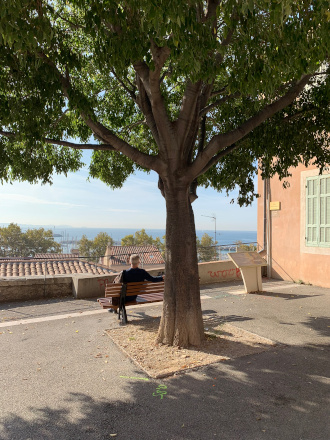
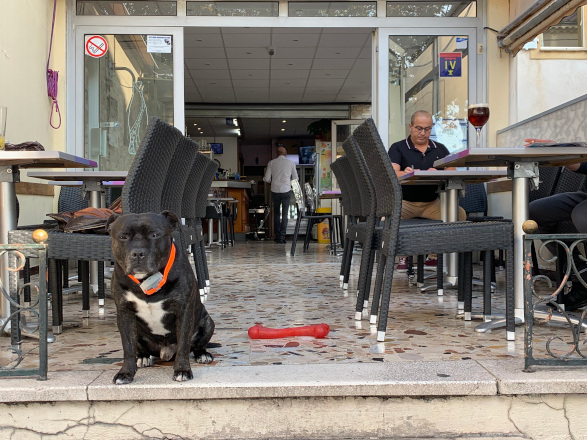
L'Estaque
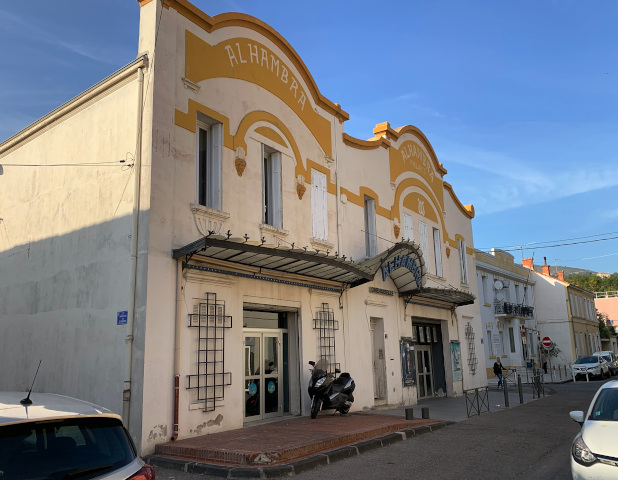
The "Cinéma Alhambra"
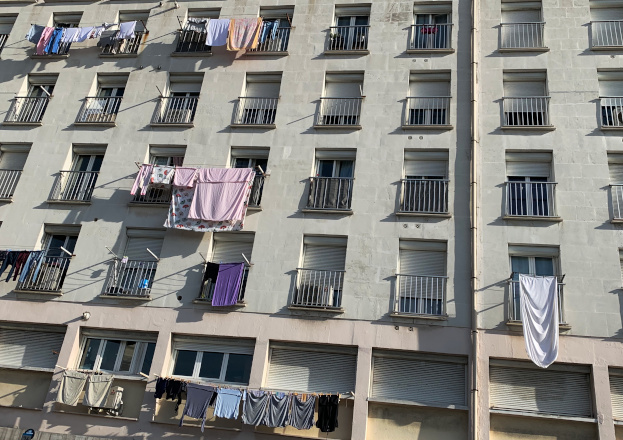
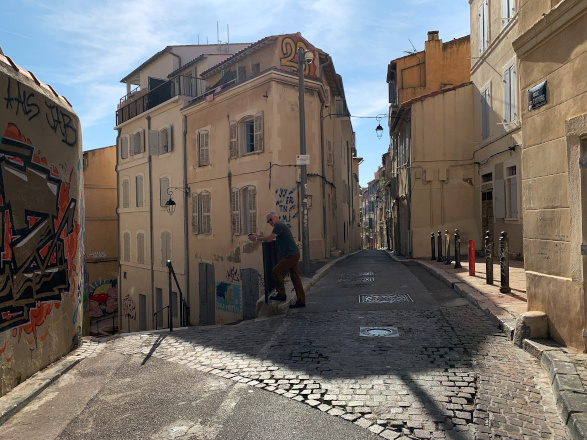
Marseille- Mid-town

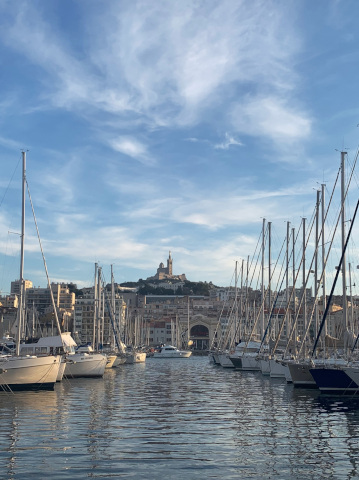
The old harbour, in the center of the town: "Le Vieux Port"
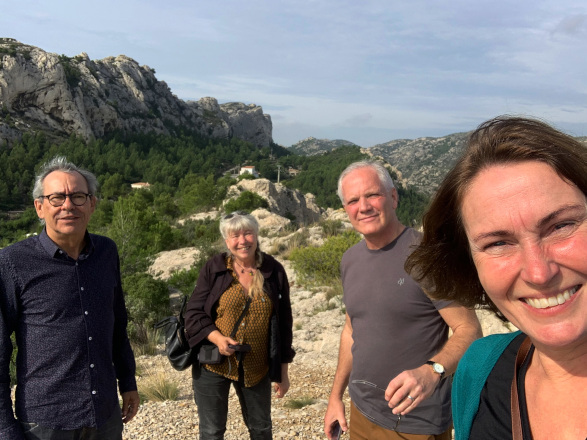
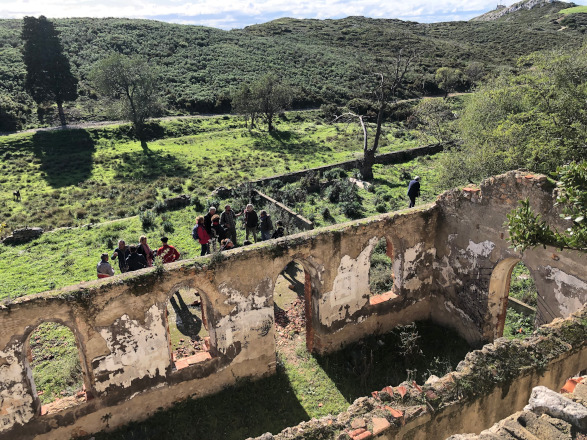
(on the left) Niolon - (on the right) Domaine Caussimont
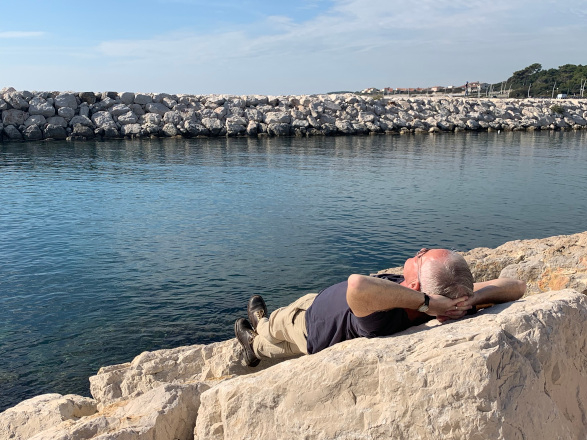
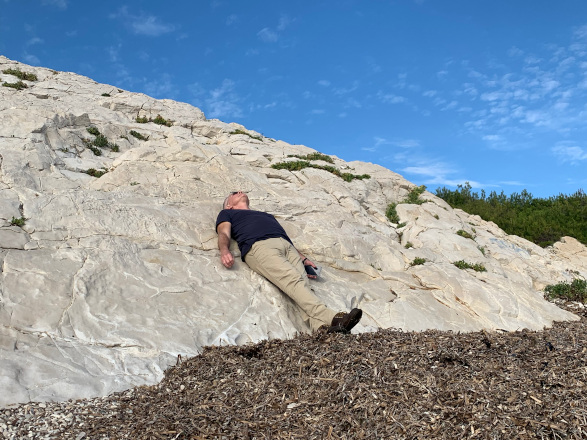
By the Mediterranean sea
(on the left) Beach of CorbiĂšres, near L'Estaque - (on the right) A beach near Martigues
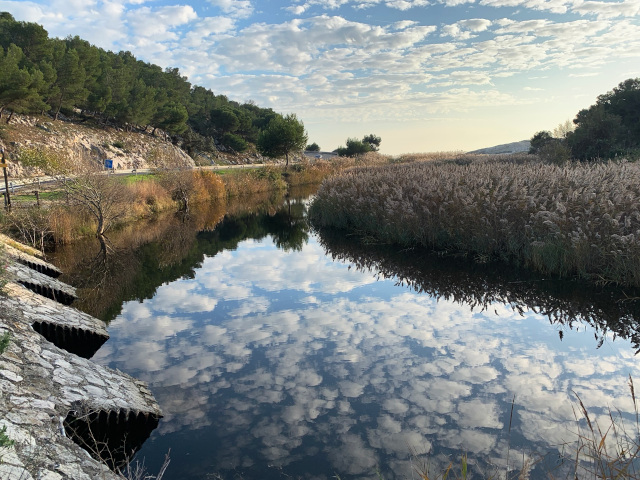

Between Sausset and Martigues
.........................................................................................................
32.Thirty second resident, for three weeks, from the16th of September until the 8th of October 2019: RĂșnar SnĂŠr Reynisson
About RĂșnar SnĂŠr Reynisson:
RĂșnar was born in 1981 in EgilsstaĂ°ir (East Iceland).
He works as a tv and radio news reporter for RĂV (The Icelandic National Broadcasting Service) in East Iceland.
He studied literature, Icelandic, and journalism in the University of Iceland.
His B.A thesis was concerned with suspense in fiction and filmâŠ
and his M.A. thesis was connected to creative writing describing ways authors try to strengthen reader involvement in story through time, space, coherence and circumstance.
In the summer of 2004 RĂșnar was hired to write the story of the hot water geothermal company of EgilsstaĂ°ir and FellabĂŠr.
He used the techniques he had described in his B.A. thesis to turn this material into a suspense story surprising readers who dare to open a book on the subject.
A writer of several magazine and collection published short stories,
he has won awards in competitions held by rithringur.is and Vikan magazine.
RĂșnarâs residence at HĂFN was a prize for winning in a competition (in 2018) on the 70th anniversary of the United Nations Declaration of Human Rights.
It was held by The EU commission in Iceland and The United Nations Regional Information Center for Western-Europe
in cooperation with The Writers Guild of Iceland and The school of Humanities in The University of Iceland.
HĂFN agreed then to be partner in this project.
At HĂFN RĂșnar has been working (quite relentlessly !) on a suspense science fiction novel and short stories.
He claimed (in his very quiet way) to be interested in peoples lack of self-control and how that influences their life, society and the planet.
Human frailty, the difference between the perceived life and reality, self-torture, craving for connections,
mind melting, and the hidden and overlooked reality of inner life. In short, the human condition (sic).
Nowdays his writing is futuristic (sic).
RĂșnar had hoped to make use of the time in Hofn and Marseilles to stare at old paintings very long till they start to come apart.
Hear boats rattling, smelling the Mediterranean Sea and comparing it to the North-Atlantic Ocean and LagarfljĂłt.
Witnessing real people in southern situations not present in Iceland. Spotting characters and settings. Finding out how the climate threat is affecting lives of people in South France. (sic).
At home RĂșnar only has time to write in the very early morning. (He is the -happy- father of three kids!)
So first and foremost, he wanted to make good use of the time and peace to write, meditate and maintain a good routine (sic).
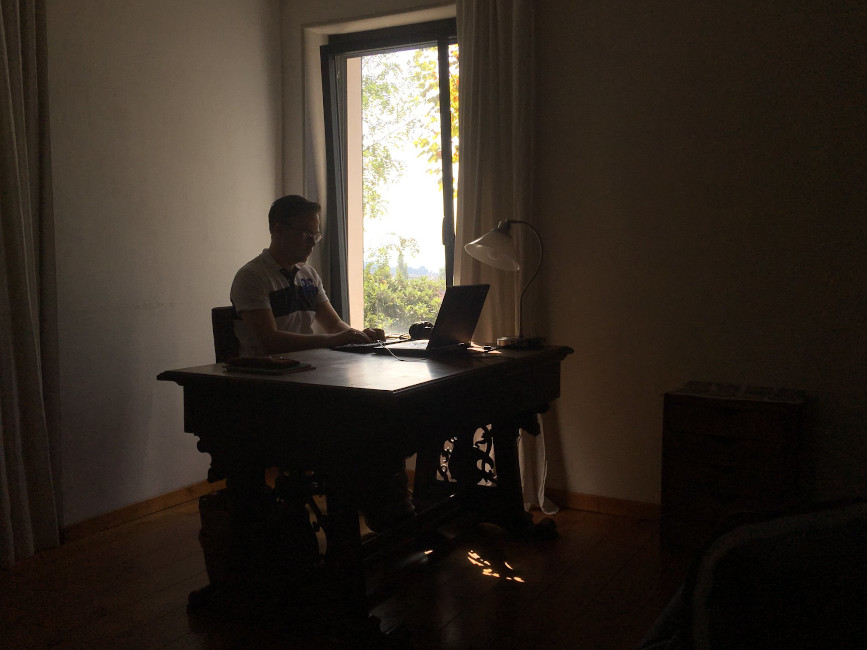
RĂșnar at work in the residence (self-portrait)
As RĂșnar was still in HĂFN/Marseille, Dominique, (the Associatio coordinator), started working on a translation (in French) of HĂ©Ă°an Ă frĂĄ (Hereafter) in English, (DorĂ©navant) (in Ftench),
RĂșnar's short story which had won the prize in Iceland on the the 70th anniversary of the United Nations Declaration of Human Rights.
RĂșnar managed, more than once, to give Dominique a bit of his time, and answered her questions about some specific words, or more general meaning,
each time she felt uncertain... or needed some clarification about the Author's intention...
Alas, they could not see through the whole text, before RĂșnar's departure...
Somehow, Dominique, after RĂșnar had left, went on, through quite a few mails(!), asking him questions, correcting and improving her translation from his suggestions ...
MANY THANKS TO HIM!
She finally considered it was time to bring her work to an end the 22nd of December 2019...
HERE IT IS: files/Dorenavant.pdf
Here, RĂșnar SnĂŠr Reynisson's original short story:
files/Hedanifra.pdf
You'll find here the first publication of this novel in Iceland: LINK
Le 21st of Ocotober 2019, a week after he had left, RĂșnar wrote an article on his FB page, as he had said to us he'd do before his departure, an article where he tells us about his experience as a resident at HĂFN;
Here it is in Icelandic: files/Run.parledeHOFNisl.pdf
Here it is in French: files/Run.parledeHOFNfra.pdf
With his article he had selected a few pictures, some photos he took himself, some others Dominique (our coordinator), took, here and there, in Marseille or around the town, during his stay:
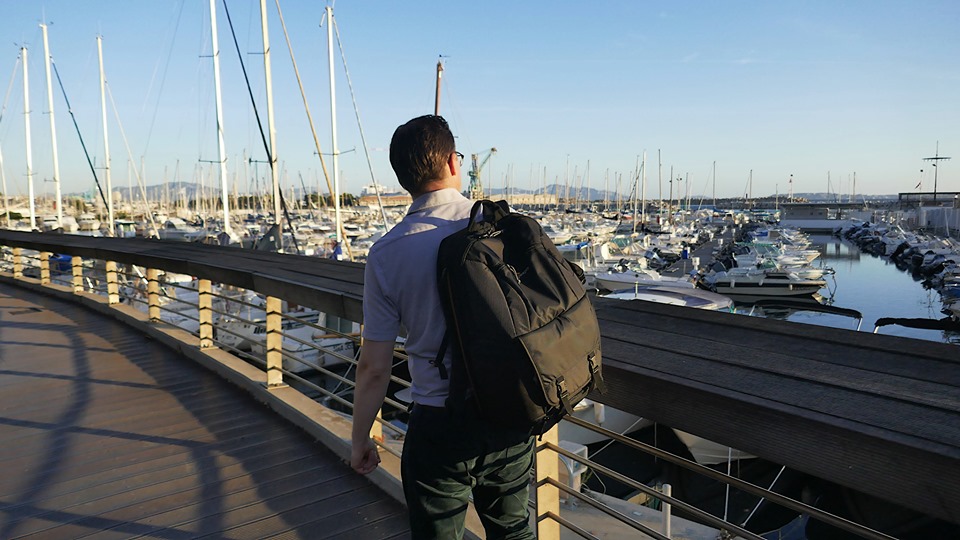
By the harbour of L'Estaque
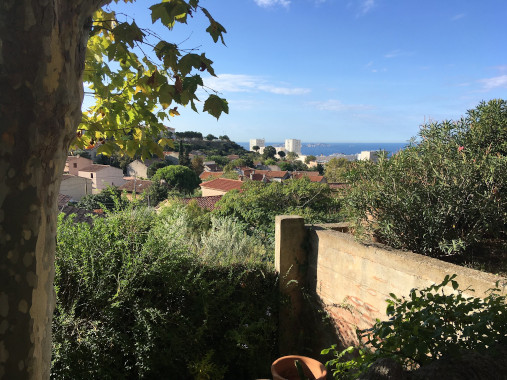
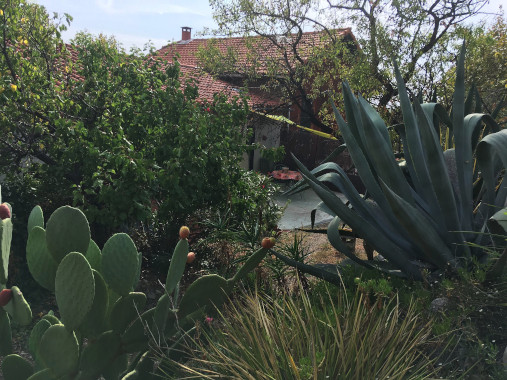
On the left, from the window of the residence; on the right, the residence garden
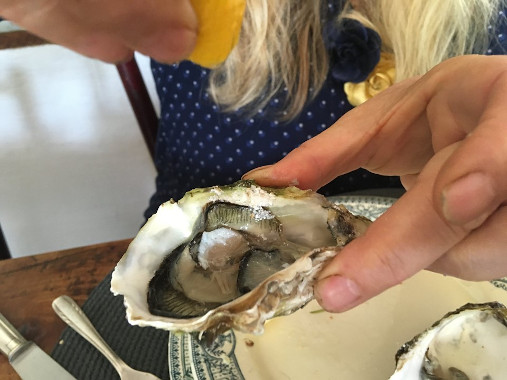
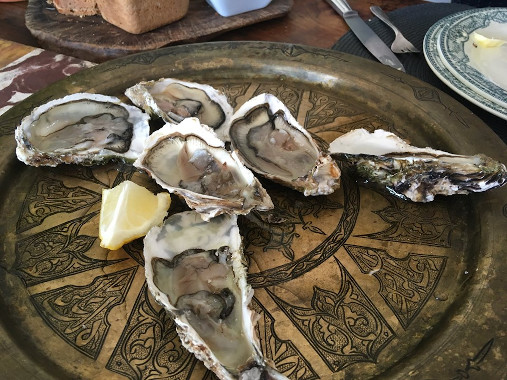
Tasting (for the first time ever!) oysters at Jean and Dominique's...
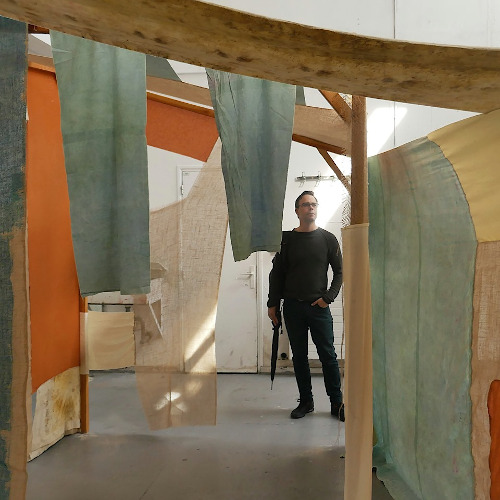
Visiting the Art school of Aix en Provence (detail of a students' work)
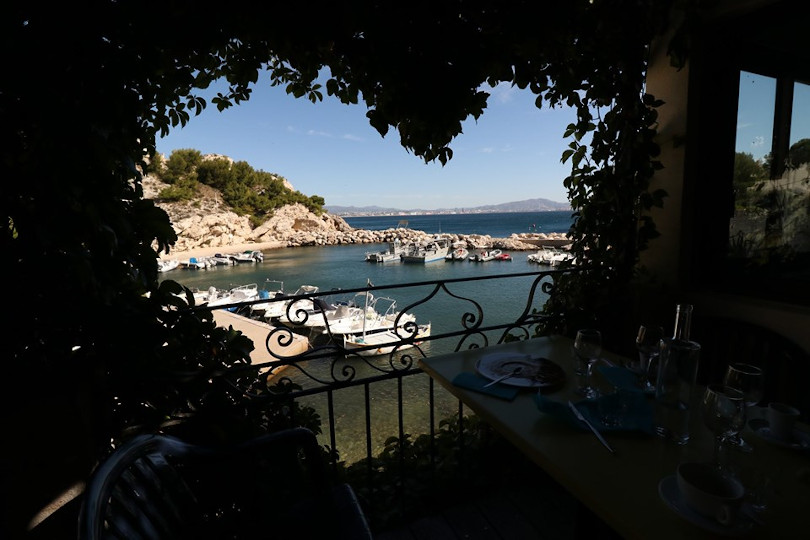
From the restaurant "La Pergola", in Niolon (a little harbour and village next to Marseille)

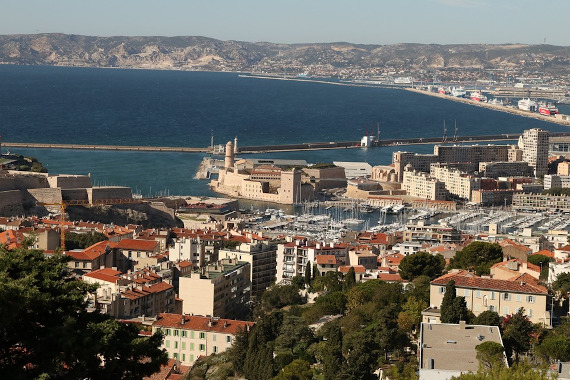
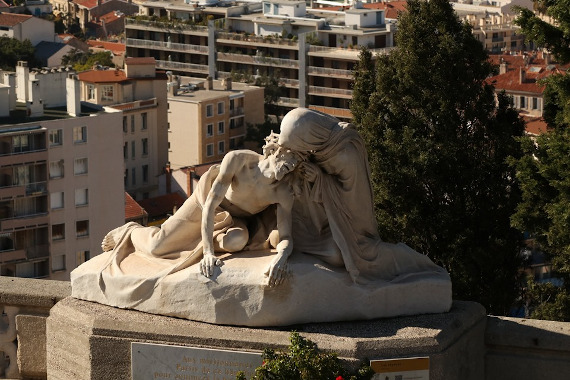
From the top of the church "Notre dame de la Garde" in Marseille
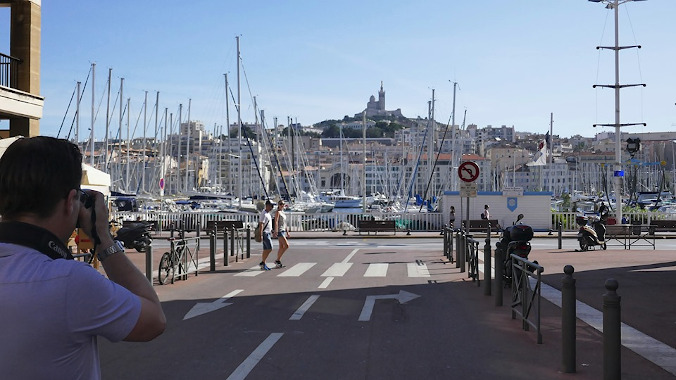
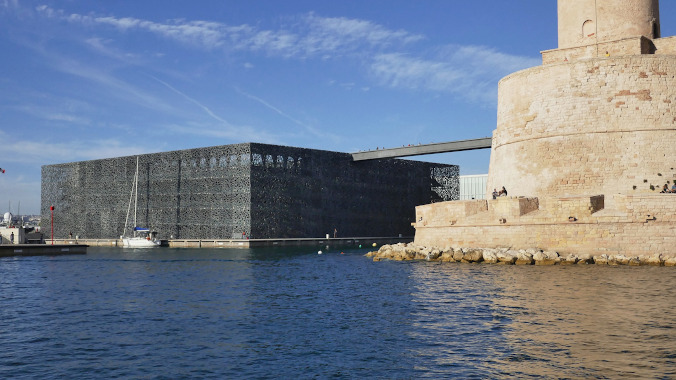
Center of Marseille: on the left, taking a photo of Notre Dame de la Garde from "The Old Harbour (Le Vieux Port); on the right, a vew of the museum "Le MUCEM", from the sea.
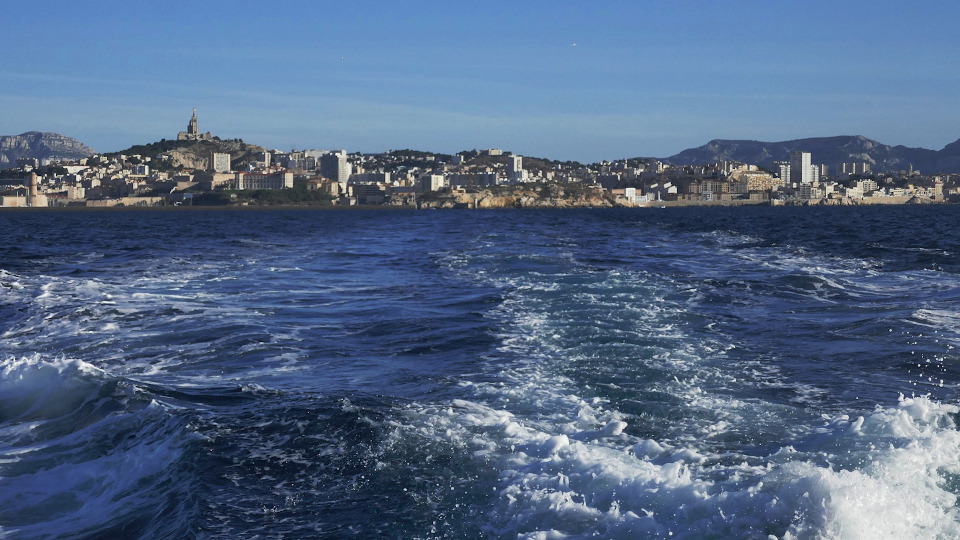
Leaving Le Vieux Port by sea towards L'Estaque